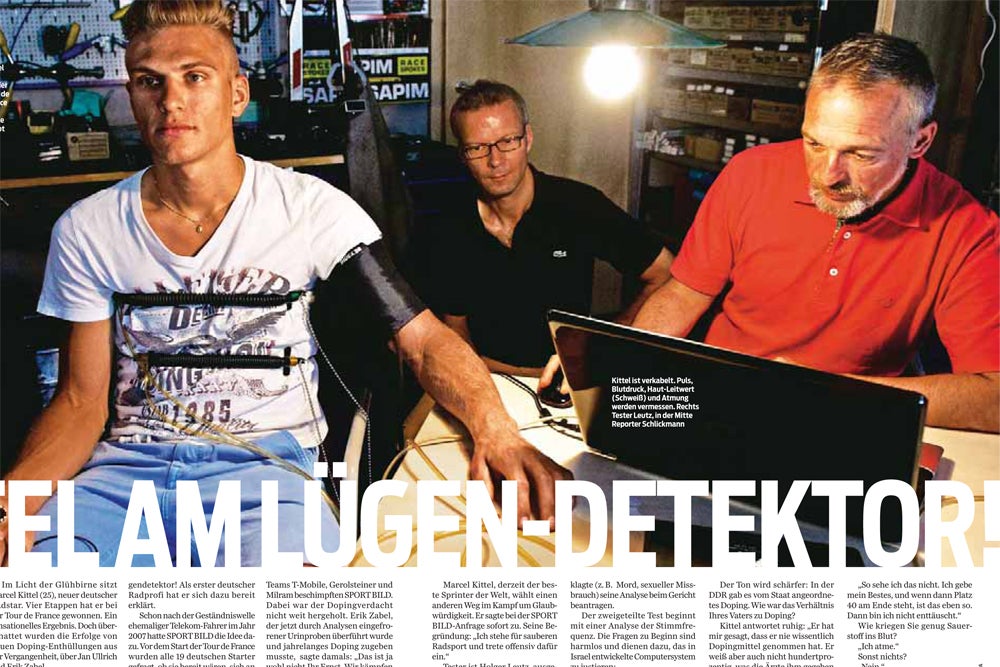Kittel undergoes polygraph test to fend off doping allegations

Marcel Kittel underwent a polygraph test concerning doping for Germany's Sport Bild magazine.
Marcel Kittel’s long left arm is wrapped in a blood pressure sleeve. Cables link to his chest to check his pulse rate. An expert diligently watches a computer screen.
Is Germany’s fastest sprinter undergoing some sort of threshold testing? No, the 25-year-old cycling star is undergoing a lie-detector test.
Perhaps a sign of just how bad things have become in cycling — especially in scandal-plagued Germany, where former heroes Jan Ullrich and Erik Zabel have confessed to doping — Kittel took up the challenge presented by German sports magazine and newspaper Sport Bild to undergo a lie-detector test.
It was a challenge that 19 other German former and current Tour racers from each of Germany’s former major teams of Gerolsteiner, Milram, and T-Mobile declined, but Kittel, who passionately insists he’s part of a new, clean generation of German riders, took up the challenge.
Bild published the results in a three-page spread in its glossy magazine insert, with an expert reporting that Kittel seemed to be telling the truth.
German polygraph expert Holger Leutz, who typically works on criminal cases involving murder and rape, conducted the test.
The idea behind polygraphs is simple enough. When humans lie, their bodies react, with elevated heartbeats, faster breathing, increased perspiration, and other telltale signs.
The two-part test opened with simple questions, with Leutz asking Kittel inquiries that would establish a baseline via simple, truthful answers.
Leutz asked Kittel his name, his profession, how he started in cycling — all straightforward questions that would set parameters for the expert analysis of the hard questions to come.
Then Leutz asks a series of 10 questions, at first seemingly simple ones, and then a few trick questions to catch the subject off-guard. According to Bild, Kittel never flitched when Leutz started asking harder questions. When asked, “Have you ever doped?” Kittel responded, “No — I won four stages at the Tour de France and arrived in Paris — clean.”
Kittel’s heart rate ranged between 65 bpm and 90 bpm, within the normal range, Leutz said. The conclusion? Leutz said Kittel is telling the truth.
“This means he’s telling the truth,” Leutz told Bild.
Kittel took a drink of water, and said he stands for clean racing.
“I have nothing to hide, so I decided to take the test,” he told Bild. “I stand for clean sport, and the test proves it.”
The story has gone viral on Tuesday, and shows to what extremes today’s professional cyclists must go to try to prove they’re racing clean.
Kittel declined comment on the story when contacted by VeloNews on Tuesday.